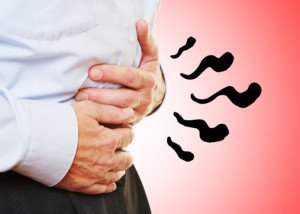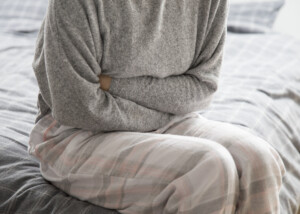
Wondering if the nutrients you eat go out with the diarrhea of microscopic colitis?
I sure was, after I was diagnosed and would see what appeared to be a lot of produce intake in my diarrhea.
So I was wondering if ingesting all the nutrients of the fruits and vegetables I juiced and also ate in whole form was being offset by “all the diarrhea.”
Bear in mind, however, that the diarrhea of microscopic colitis appears to be in a greater volume than it truly is, due to all the water that comes out with it.
Does the diarrhea of microscopic colitis cause the patient to lose nutrients?
“Microscopic colitis is a disease that affects the large intestine,” says Matilda N. Hagan, MD, inflammatory bowel disease specialist at The Center for Inflammatory Bowel and Colorectal Diseases, part of The Melissa L. Posner Institute for Digestive Health and Liver Disease, Mercy Medical Center in Baltimore.
“Malabsorption is not a typical part of this disease. The large intestine is primarily responsible for water absorption.
“Other causes of diarrhea that affects the small intestine can cause malabsorption where nutrients can be lost.”
In MC, the large intestine (colon) does not absorb water very well. As a result, the fecal matter that builds up gets mixed with a lot of water, causing the stools to be in the form of diarrhea once it’s voided, rather than in formed stools.
And if you can see fragments or bits of the fruits and vegetables you’ve recently eaten, that’s largely because the looseness or liquid nature of the diarrhea makes these undigested scraps easier to see, whereas with hard, formed stools, they are less visible.
So if you have microscopic colitis, feel free to eat all the nutrients you want without fearing that they are being voided out of you.

 Dr. Hagan
Dr. Hagan







































